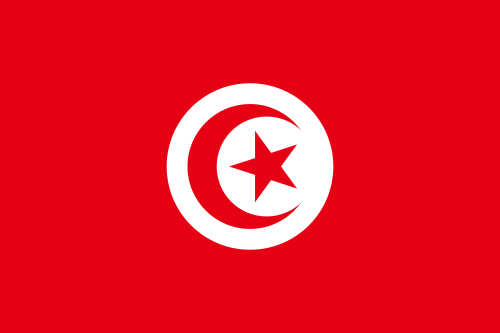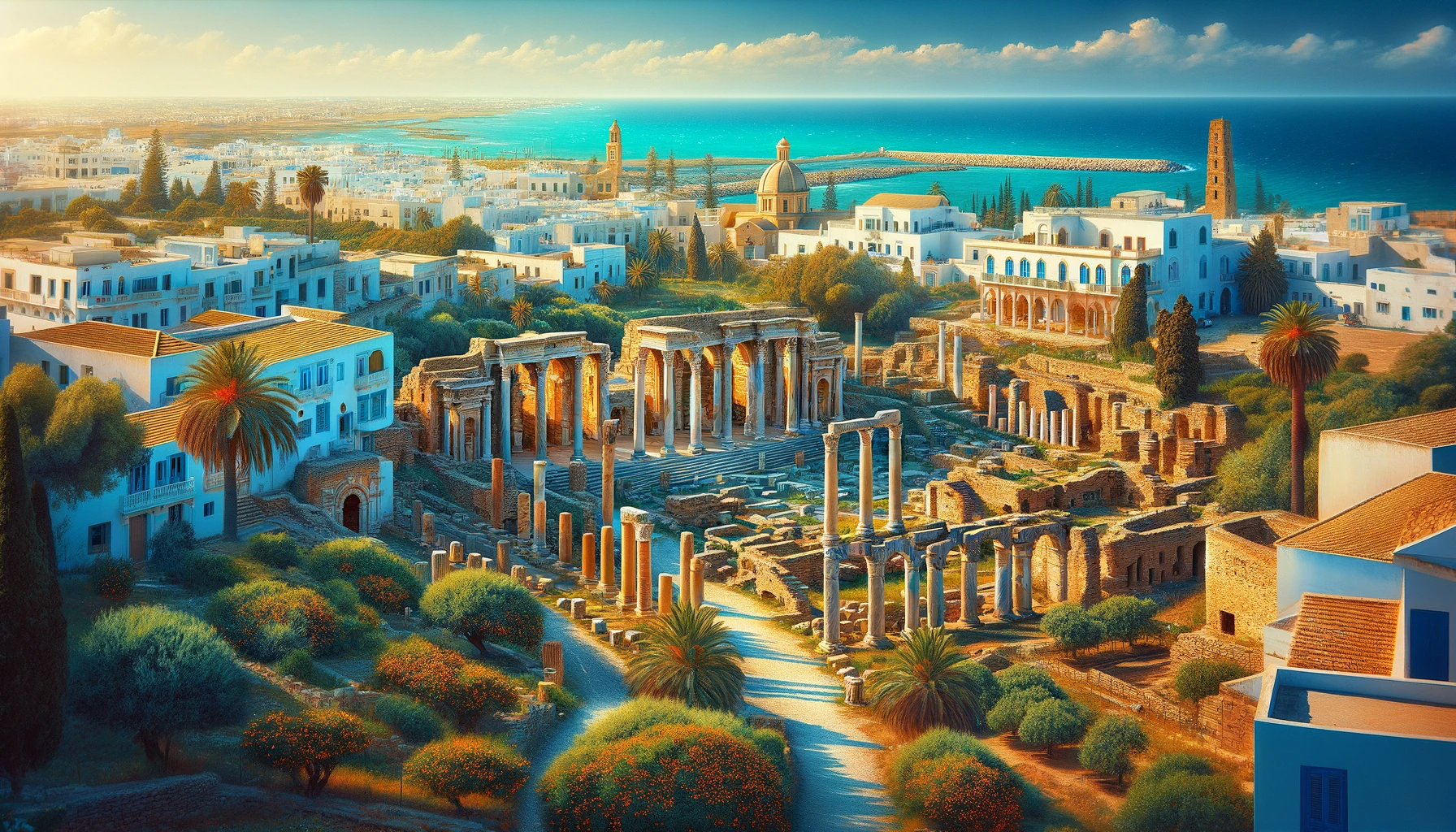Tunisia is a nation with a storied past, blending influences from Africa, the Middle East, and the Mediterranean. It is a country of contrasts, from ancient ruins and lush farmlands to sprawling deserts, forging a path towards a stable and prosperous future.
List of Public and National Holidays for Tunisia in the year 2024
- New Year’s Day: Monday, 1 January 2024
- Independence Day: Wednesday, 20 March 2024
- Martyrs’ Day: Tuesday, 9 April 2024
- Eid al-Fitr: Wednesday, 10 April 2024
- 2. Eid al-Fitr Holiday: Thursday, 11 April 2024
- 3. Eid al-Fitr Holiday: Friday, 12 April 2024
- Labour Day: Wednesday, 1 May 2024
- Eid al-Adha: Sunday, 16 June 2024
- Eid al-Adha Holiday: Monday, 17 June 2024
- Islamic New Year: Sunday, 7 July 2024
- Republic Day Tunisia: Thursday, 25 July 2024
- Women’s Day: Tuesday, 13 August 2024
- Prophet Muhammad’s Birthday: Sunday, 15 September 2024
- Evacuation Day: Tuesday, 15 October 2024
- Revolution and Youth Day: Tuesday, 17 December 2024

History
- Ancient Times: Inhabited since ancient times, Tunisia’s history is marked by various civilizations, including the Phoenicians, who founded Carthage.
- Roman Empire: After the Punic Wars, Tunisia became a prosperous part of the Roman Empire, evident in extensive ruins like those at Dougga and El Djem.
- Islamic and Ottoman Rule: Arab conquests in the 7th century introduced Islam, which has since been integral to Tunisian culture. Later, it became part of the Ottoman Empire.
- French Colonial Era: Became a French protectorate in the late 19th century. This period influenced many aspects of modern Tunisian society.
- Independence and Modern Era: Gained independence in 1956. In 2011, Tunisia was the birthplace of the Arab Spring, leading to significant political changes.
Geography
- Location: Situated in North Africa, on the Mediterranean coast, sharing borders with Algeria and Libya.
- Diverse Landscapes: Features a northern Mediterranean climate with fertile lands, central plains, and the Sahara Desert in the south.
- Climate: Mediterranean in the north with mild, rainy winters and hot, dry summers; arid in the south.
Culture
- Rich Heritage: A blend of Arab, Berber, African, and European influences. Known for its music, literature, and handicrafts.
- Cuisine: Tunisian cuisine is rich and varied, known for its use of spices. Dishes like couscous, brik, and harissa are popular.
- Religion: Predominantly Muslim, with mosques playing a central role in community life.
Economy
- Diversified Economy: Traditionally based on agriculture, particularly olive production. Other sectors include mining, manufacturing, and tourism.
- Tourism: Known for its Mediterranean beaches, historical sites, and desert tours, tourism is a major contributor to the economy.
- Challenges and Development: Faces challenges like unemployment and regional disparities. Efforts are ongoing to modernize the economy and boost investment.
Society
- Population: Comprises a mix of Arab and Berber ethnicities. The majority of the population is concentrated in the northern and eastern regions.
- Education and Healthcare: Has a well-developed education system and universal healthcare, with ongoing initiatives to improve quality and accessibility.
- Languages: Arabic is the official language, with French also widely used, especially in business and education.
Environmental Focus
- Natural Beauty: Home to a variety of landscapes, from Mediterranean coasts to Sahara dunes.
- Conservation Efforts: Committed to environmental conservation, with several national parks and protected areas.
International Relations
- Global and Regional Role: Active in international and regional affairs, particularly within the Arab world and Africa.
- Partnerships: Maintains strong ties with European nations, especially France, and is a member of the United Nations and the African Union.
Tourism
- Cultural and Historical Attractions: Rich in historical and cultural sites, including the ancient ruins of Carthage, the Medina of Tunis, and the Islamic city of Kairouan.
- Beach Resorts and Ecotourism: Offers a range of tourism experiences, from luxury beach resorts to ecotourism adventures in the Sahara.
Challenges and Future Outlook
- Political Stability and Reform: Following the Arab Spring, Tunisia has been navigating its path towards stable democracy and effective governance.
- Economic Growth and Innovation: Focusing on economic diversification, technological innovation, and youth employment.
- Social Development: Addressing social issues, enhancing public services, and promoting gender equality and human rights.

